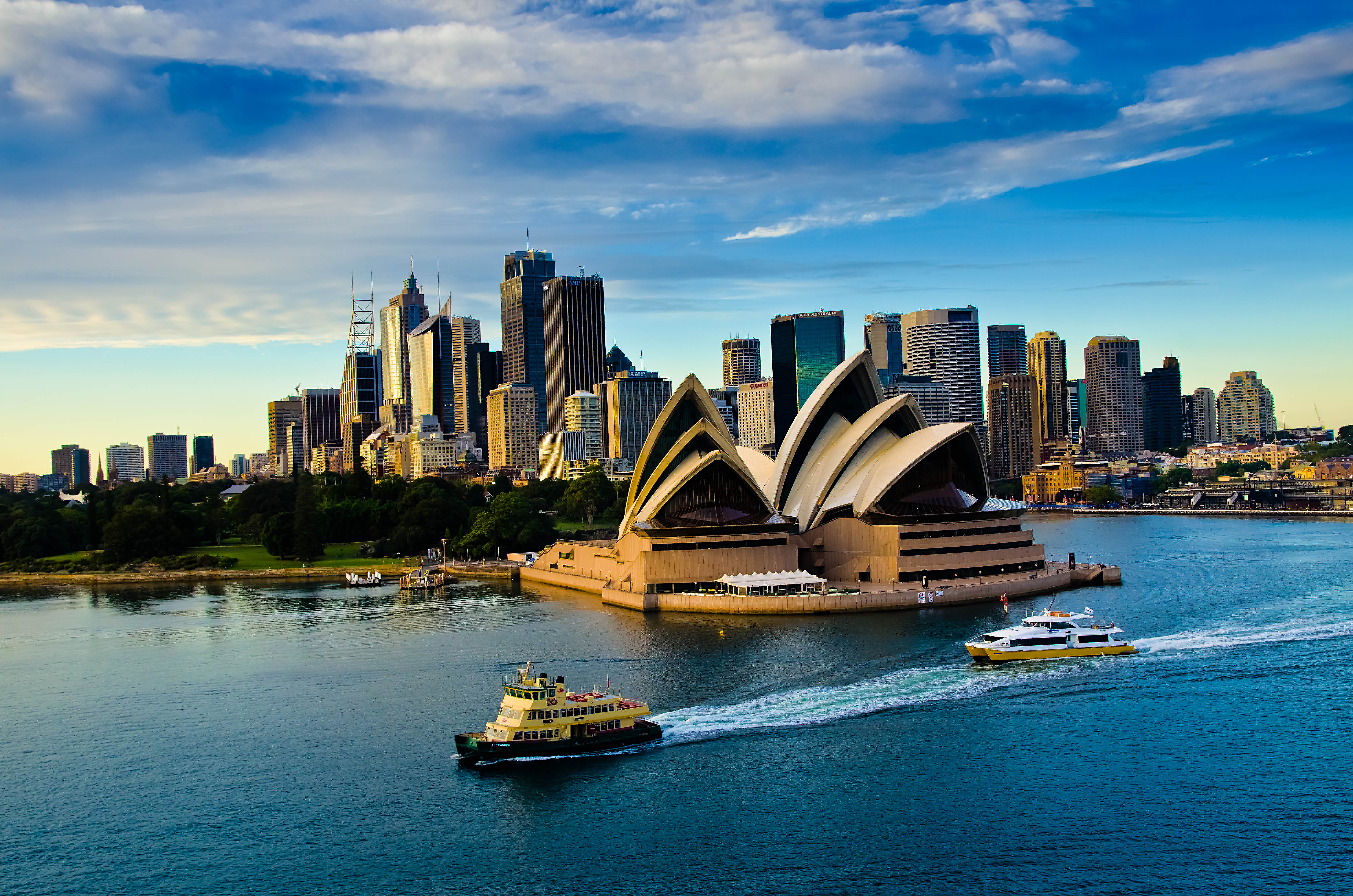Guide to Australia: Facts and Information
| Geography |
Australia is the world's sixth-largest country by total area, spanning three time zones.
It is located in the Southern Hemisphere and is surrounded by the Indian and Pacific Oceans.
|
| Capital City |
Canberra is the capital of Australia, known for its planned layout, iconic landmarks like
Parliament House, and the Australian War Memorial. |
| Language |
English is the official language of Australia, widely spoken throughout the country. |
| Currency |
The currency in Australia is the Australian Dollar (AUD). Credit cards are widely
accepted, and ATMs are easily accessible. |
| Climate |
Australia experiences diverse climates due to its size. The northern regions have a
tropical climate, while the southern regions have a temperate climate. The country's seasons
are the opposite of those in the Northern Hemisphere. |
| Wildlife |
Australia is renowned for its unique wildlife, including kangaroos, koalas, wombats, and
various species of birds and marine life. It is essential to respect and protect the native
fauna and follow any guidelines or regulations when encountering wildlife. |
Cultural Traditions and Prohibited Behaviors
| Indigenous Culture |
Australia has a rich Aboriginal and Torres Strait Islander heritage. It is important to
respect and appreciate their culture and land. Avoid touching or entering sacred sites
without permission and adhere to any cultural protocols when interacting with Indigenous
communities. |
| Barbecue Culture |
Australians enjoy outdoor barbecues (BBQs) and social gatherings. If invited to a BBQ, it
is customary to bring a small gift or contribute to the meal, such as a salad or drinks.
Avoid arriving empty-handed or being overly critical of food choices. |
| Sporting Events |
Australians are passionate about sports, particularly cricket, Australian Rules Football
(AFL), and rugby. When attending sporting events, refrain from engaging in disruptive or
disrespectful behavior and follow the rules and etiquette specific to each sport. |
| Beach Culture |
Australia has stunning beaches, and beach culture is an integral part of Australian life.
Observe beach safety guidelines, swim between the flags at patrolled beaches, and respect
local customs and regulations, such as nudity restrictions and alcohol consumption rules.
|
| Indigenous Art |
Australia has a thriving art scene, including Indigenous art that reflects the unique
culture and stories of Aboriginal and Torres Strait Islander peoples. When purchasing
Indigenous art, ensure you buy from reputable sources and respect copyright restrictions.
|
| Conservation and Environment |
Australians have a strong commitment to preserving the environment. Follow proper waste
disposal practices, respect national parks and protected areas, and adhere to any
restrictions or regulations in place to safeguard the natural beauty of Australia. |
Prohibited Behaviors or Actions
| Prohibited Behaviors or Actions |
- Avoid littering and dispose of rubbish appropriately.
- Do not smoke in designated non-smoking areas.
- Respect wildlife and do not feed or disturb animals.
- Do not engage in discriminatory or offensive behavior based on race, gender, religion,
or sexuality.
- Follow local alcohol consumption laws and drink responsibly.
- Observe and adhere to any signage or regulations in national parks and protected
areas.
|
Remember:
These are general guidelines, and specific cultural practices and regulations may
vary across regions in Australia. It is always important to be respectful, observe local
customs, and follow any instructions or guidelines provided by authorities or local communities
during your visit.

